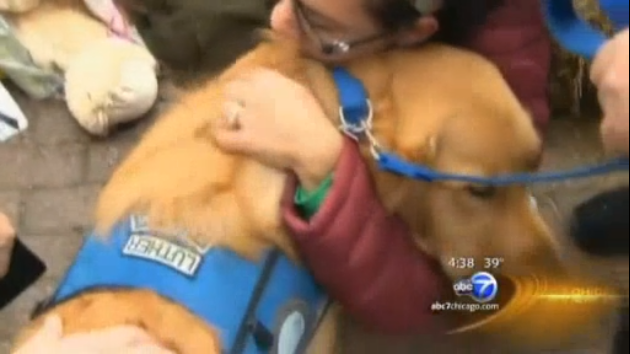Dog Disease Has Reportedly Infected Humans

Leptospirosis, an infectious disease normally spread by rat and mice urine, and more commonly found in tropical countries such as those in Asia, is reportedly on the rise in the Western United States where it's also being spread by dog urine.
A veterinarian in Arizona said there’s been a rise in the number of dogs she sees each year that have leptospirosis, according to a news report by an ABC News 15 affiliate in the state. The number of leptospirosis cases in Arizona, Colorado and Utah (and in other parts of the United States) is unknown because states aren't required to report leptospirosis cases.
Leptospirosis is considered the most widespread zoonotic infection (an infection spread by animals to humans) in the world. Infected dogs are a common source of infection in the U.S. Leptospirosis causes serious illness in dogs, other animals and people.
The disease is caused by corkscrew-shaped bacteria called "leptospira" that live in water or in warm, wet soil. It's often transmitted by animal urine or by water, or soil containing animal urine coming into contact with breaks in the skin, eyes, mouth or nose.
Leptospirosis most commonly occurs in farmers and low-income people who live in cities in the developing world. In the United States and in other developed countries, leptospirosis most commonly occurs among persons involved in outdoor activities in warm and wet areas.
Anywhere from seven to 10 million people are infected by leptospirosis every year. The disease causes close to 59,000 deaths annually.
Initial signs of leptospirosis include fever, lethargy and lack of appetite. Untreated, leptospirosis can develop into a more severe, life-threatening illness that attacks the kidneys, liver, brain, lungs and heart.
Dogs can pick up the bacteria from water or soil contaminated with infected urine. Pets spending a lot of time in the water or in areas prone to rain or snow runoff are most at risk. Humans can pick up the bacteria from contact with the urine of an infected dog.
Leptospira can be found in domesticated and wild animals. Included in this list are rats, pigs, raccoons, cattle, foxes and skunks. Cats aren't affected by leptospirosis.
Humans who become infected with leptospirosis manifest flu-like symptoms. The illness can be treated with antibiotics. Dogs can also be successfully treated if treatment is given at an early stage.
In the U.S., the prevalence of canine leptospirosis has increased in recent years. Veterinarians estimate that as many as eight percent of dogs are shedding leptospirosis, some asymptomatically (without exhibiting any symptoms).
Health experts say climate change, population growth and human encroachment of animal habitats have all increased human and canine exposure to leptospirosis and other pathogens.




























